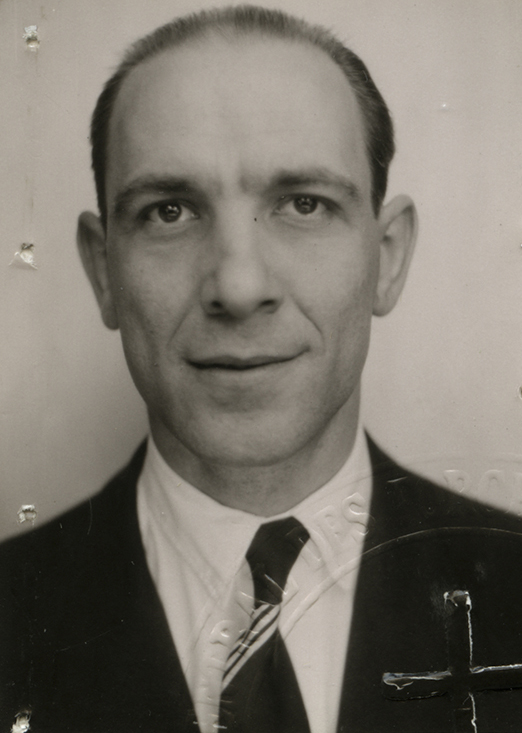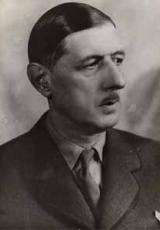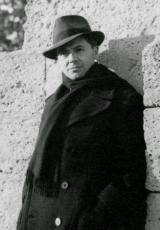From the BCRA archives to the White Paper

Even before the liberation of France, the need was felt to explain and justify the action of the BCRA. In late 1944, this task was entrusted to Daniel Cordier, who discharged it under sometimes farcical conditions. Assisted by Vitia and Stéphane Hessel, he soon realised the importance of his work: writing the Livre Blanc du Bureau central de renseignements et d'action.
The archives of the Bureau central de renseignements et d'action (BCRA, Central Bureau of Intelligence and Operations) were exploited in Paris for two very different purposes from the autumn of 1944: the Direction générale des études et recherches (DGER, Directorate General of Studies and Research), the successor to the BCRA, used documents from London and Algiers for operational and administrative functions, but the idea quickly emerged of also using them to produce an official history of the BCRA. Throughout the war, the service founded by Colonel Passy (André Dewavrin) had been accused of the most heinous crimes without being able to defend itself. Following the Libération, these attacks intensified and General de Gaulle gave his consent for the preparation of a Livre blanc du BCRA (BCRA White Paper) to defend the actions of his secret services.
An interview given by Daniel Cordier to the Service historique de l'armée de Terre (Army Historical Service) on 26 January 1999 provided a new insight into how a part of the BCRA archives was repatriated to Paris for use in the project. Parachuted into France in July 1942, Daniel Cordier returned to the BCRA offices in London in May 1944. The following summer, he went back to Paris and joined the service in the building at 2 boulevard Suchet in the 16th arrondissement. The DGER was led by Jacques Soustelle at the time. It was André Manuel, in charge of the service's operational sections, who gave Daniel Cordier responsibility for writing the Livre blanc du BCRA.
”It consisted of two things. We had to find the BCRA archives, whose location was unknown, put them in a room somewhere and then sort through them, first of all to illustrate the text. With great difficulty, I succeeded in obtaining a room, a very nice room. It must have been a former dining room. I think it was on the fourth floor. There were no chairs. There were no tables. There was nothing.”
”You are the defender of the BCRA's honour”
”We had to find the archives. Finally, I went to question people. I was told they were in Le Havre or Cherbourg, I can't remember very well [Ed.: initially destined for Cherbourg, the archives were finally unloaded in Isigny-sur-Mer]. They were on the quayside. They had arrived in packing cases from England and been left on the quay - in a shed, but without walls, just a roof. I organised some trucks. I was still on my own. I had no idea what I was going to do. I didn't know what a White Paper was. I didn't know what an archive was. I wasn't interested at all. But that's the army.”
”Since I didn't understand what it was for and what was wanted, Manuel said to me: 'You know, it's very important, it's a very responsible job because the BCRA is being dragged through the mud. You are the defender of the BCRA's honour.' When you were out in Paris, and you met people in the restaurant, in the street or wherever, it was better not to say you were with the BCRA.”
”One of the worst moments of my life”
”One day, Manuel's secretary told me: 'They're looking for you everywhere. The archives are downstairs. The truck's downstairs.' They were in these kinds of baskets. I went and sat down in the room. There was nothing. I'd found a chair. That's all I had. They came in with their baskets. I saw the first one come in, lean forward and empty the basket on the floor.
”Me: 'What are you doing? I told you to put the basket down.'
”Him: 'No no, the basket is ours, etc.'
”What a performance… I thought: I'm going to get killed, I'm lost. All I can do is put it in piles. But by the end they just put everything in the middle and it formed a kind of overflowing mountain. I think it was one of the worst moments of my life. I hadn't the slightest idea what an archive was, but I was sure it wasn't supposed to be like that. One thing I was never able to get hold of, unfortunately, was binders. France was a ruined country. There was nothing. There was nothing. I closed the door and saw there was no lock. I went asking for a lock everywhere. In the end I found a bit of chain and a padlock. I went back up. There were three or four people in the room, looking. That was just the beginning. Because when people, friends, Schmidt, Fassin [Ed.: In fact Raymond Fassin, known as Sif, died as a deportee], the radio people etc. knew that I was taking care of it, people came to see me and left with their files. I locked myself in with my padlock.
”I got down on all fours and I started at one end. Once I had things in piles, blocks that went together, it was relatively consistent. But the piles weren't consistent from one to another - it went from intelligence to counter-espionage, operations, radio etc. Everything was mixed up, but in piles. Basically, I tried to group the piles together in the corners.”
”In the end I found Moulin”
”In the end I found Moulin, the telegrams, the reports from Sif [Fassin], Kim [Schmidt], Pichard, people I knew. I found my own telegrams. I found reports I had coded etc. That started to make me feel a bit better. With this operational part, I started to find my way little by little, because at least there I knew what it was about. Basically it had really started with just secretarial work. There were five or six reports from Moulin and three or four from officers before I arrived. Full stop. And then maybe ten telegrams. I arrived at the right time. All the documents I found for the southern zone and the northern zone, that was my area, I knew it.
”I quickly realised I wouldn't be able to write anything at all about the intelligence archives. Manuel told me: 'Mrs Hessel will take care of the intelligence part.' That's how Vitia Hessel came to join me. Before she died, she said: 'I didn't come and join you until December.' She had tried to meet me in London. She had heard of me from Stéphane Hessel, who I had met before leaving. She was a wonderful woman. We spent our lives together. We went to Jacqueline Boulloche's for breakfast, the sister of Boulloche who had been a military delegate. She told me things I didn't know about London, because she knew everyone before the wild hordes of Pétainists arrived. That's how I got to know not only the BCRA people but the Commissariat à l'intérieur. She helped me. She had a university education. She explained what a White Paper was, what we had to do and how we should present it.
”I didn't know what we should do with all these reports, these telegrams. She explained that what we had to bring out was the things that proved that the BCRA was acting to help the Resistance. In intelligence it was different. But in my area, we had to find evidence of the BCRA's work to organise, fund and arm the Resistance. Once I had put things in chronological order, I started reading everything I found. When I saw something interesting, I took it out of the file and put it to one side. I wrote the story of Moulin's mission. That was the viewpoint I was working from.
”This all continued until April, when Passy was appointed director. That's when I saw Passy again.”
In April 1945, Passy took over from Jacques Soustelle as the head of the DGER, and asked Daniel Cordier to be his chief of staff. A few weeks later, on 8 May 1945, Stéphane Hessel returned after having been deported. He had had a miraculous escape. He helped his wife and Daniel Cordier to write the Livre blanc. In his memoirs, he made only a brief mention of what he considered a ”premature work, considering how scattered the archives still were” (Stéphane Hessel, Danse avec le siècle, Paris, Seuil, 1997, p. 100).
Le Livre blanc du BCRA, written but never published
Finally, the first three parts of the Livre blanc were presented to General de Gaulle at the end of November 1945. The head of government gave his agreement in principle for its publication by Gallimard. He appointed a committee consisting of Diethelm, Billotte and de Courcel to approve the text. But his resignation in January 1946, followed by Passy's a few weeks later, put an end to this eminently political project.
Falling into obscurity, the Livre blanc du BCRA nevertheless provided a solid documentary base for Colonel Passy when he began writing his memoirs in 1946, still with the intention of defending his record at the head of the BCRA during the war. These three volumes of memoirs and the historical studies of the BCRA undertaken since then have attenuated the interest of a document prepared in haste. Despite this, plans have been made to publish it several times, especially since the 1990s. So far without success.
Sébastien Albertelli
Teacher and doctor of history
FOR MORE INFORMATION
The oral statement by Daniel Cordier (GR 3 K 140) can be consulted freely. His file as a resistance agent, conserved with the record number GR 16 P 85797, and that of Stéphane Hessel, numbered GR 16 P 292899, can be viewed in the reading room.
The Livre blanc du BCRA is conserved at the National Archives under the numbers 3AG2/1-3.
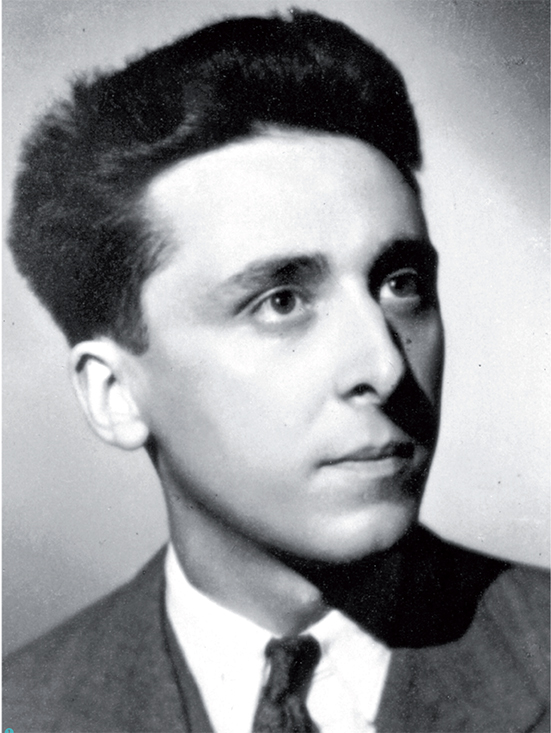
Daniel Cordier.
© Collection Daniel Cordier
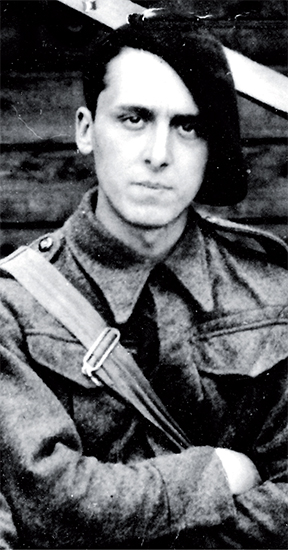
Daniel Cordier.
© Musée de l'Ordre de la Libération
